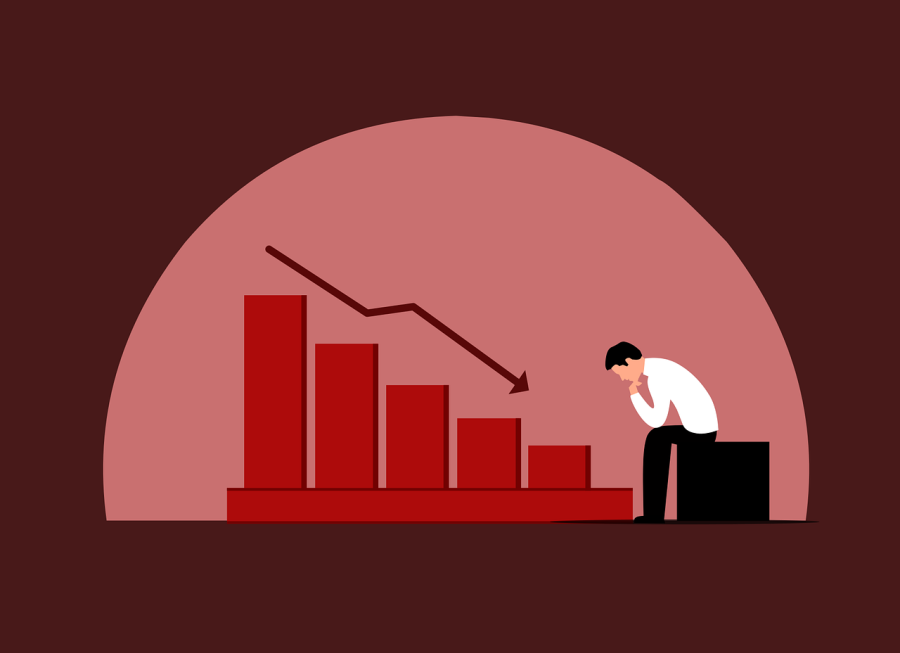The economy is on the verge of another great recession and your financial future is at stake. It is only a matter of time before millions of people get laid off and will have to find other ways to earn a living.
Don’t wait for the economy to get worse. Now is the time to be bold and take action to protect your financial future.
Below are the top eight ways to protect your financial future in a turbulent economy.
1) Multiple Streams of Income
Multiple streams of income can give you financial security when you lose your job or some other primary income source. Then you can fall back on the extra sources of income without having to sell your home or live on the streets.
Some examples of multiple income streams include:
- Freelance writing
- Selling art
- Retail arbitrage
- Invest in high dividend stocks
- Start a blog
- Make a YouTube channel
- Ad promotions on a car wrap
There are numerous ways to make money besides a 9-to-5 job. They won’t make you massive amounts of money overnight, but they could earn you substantial income if you continue working at them. You just have to get creative and spend the time setting up your various income streams.
2) Make a Budget
People without budgets often overspend on items or services they don’t need. A budget will enable you to track where all your money goes each month, so you don’t throw it away on things that don’t matter.
Create a budget outlining each one of your expenses and income streams. Then you’ll know how much you pay each month versus how much you take into the bank. From there, you can make adjustments wherever they are necessary.
3) Build a Cash Reserve
Do you have a cash reserve handy? It helps to save at least a few thousand dollars or more for a rainy day.
However, you should save enough money to support yourself and your family for at least six months. Then if economic times get tough and you lose your job, you can fall back on your cash reserve for financial support until you get back on your feet again.
4) Eliminate Unnecessary Bills
Are all your monthly bills and expenses for essential services? If you have certain monthly expenses that don’t contribute to living necessities, you should consider reducing or eliminating them.
Some examples of unnecessary bills include:
- Cable television premium packages
- Restaurants / casual dining
- Landline phone
- Credit card
- Expensive insurance
If you cannot eliminate a particular bill entirely, try reducing the amount you owe each month. For example, auto insurance or cable television bills could be decreased if you renegotiate or change your plan with the company.
5) Eliminate Outstanding Debt
Do you have outstanding loans and credit card debt? If so, eliminate this debt immediately before the next great recession because you don’t want to get stuck paying these bills when times get tough.
Consider getting a debt consolidation loan to pay off multiple creditors. Then you’ll only have one creditor to pay back, lowering your interest payments.
6) Save for Retirement
Don’t wait to save for retirement. Invest your extra cash into a Roth IRA, 401(k), or retirement savings account.
If you have a nest egg waiting for you at retirement age, the state of the economy won’t matter much to you anymore.
7) Home Equity Line of Credit
Another option is to apply for a home equity line of credit if you own your own home. A home equity line of credit borrows against the equity of your home. It is like a loan reserve you don’t have to pay back until you start using the credit.
A home equity line of credit is good to have on standby for emergency expenses. Then pay back the credit as soon as you can. Don’t spend the credit on anything other than emergency expenses.
8) Live Frugally
Grow accustomed to living a frugal lifestyle. Start buying clothes and household goods from thrift stores rather than retail stores. Don’t eat out at restaurants or drive anywhere unless it’s for a special occasion or out of necessity.
Frugal living could save you hundreds of dollars per month if you do it right. Just remember to spend money on things you need to survive and nothing else. You’ll be surprised how much extra cash you’ll have at the end of each month.
Conclusion
Relying on a 9-to-5 job will no longer secure your financial future. The politicians and corporate leaders certainly have no interest in helping you either. So, you have to help yourself.
Now you know some of the best ways to prepare for the inevitable financial collapse that is bound to happen. If you act fast, perhaps you could reduce the financial burden on yourself that others are bound to feel.
![]()

